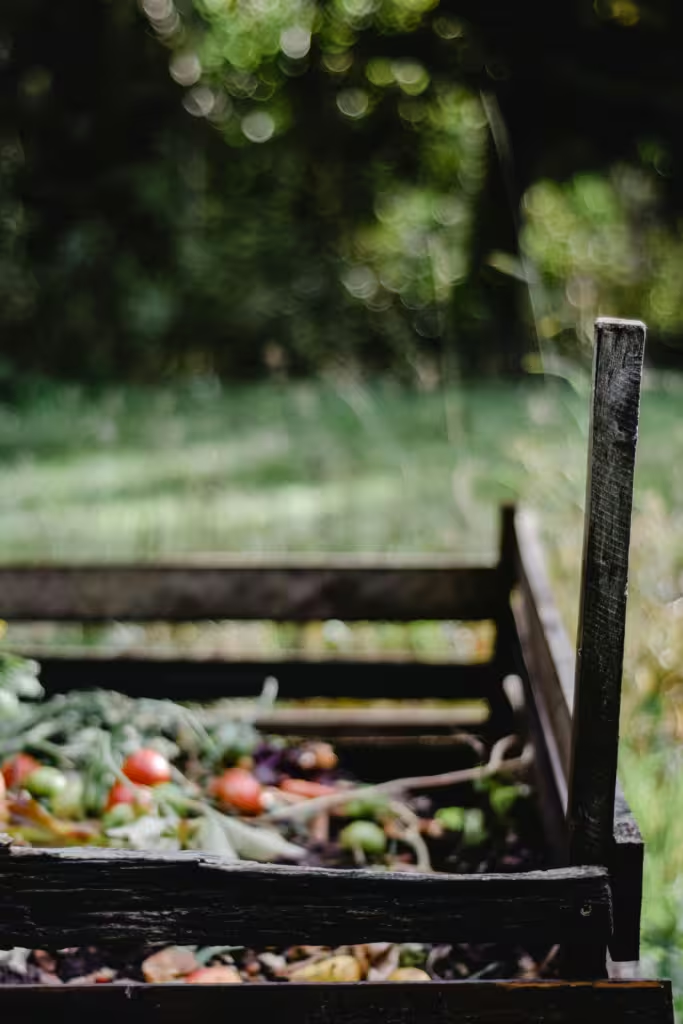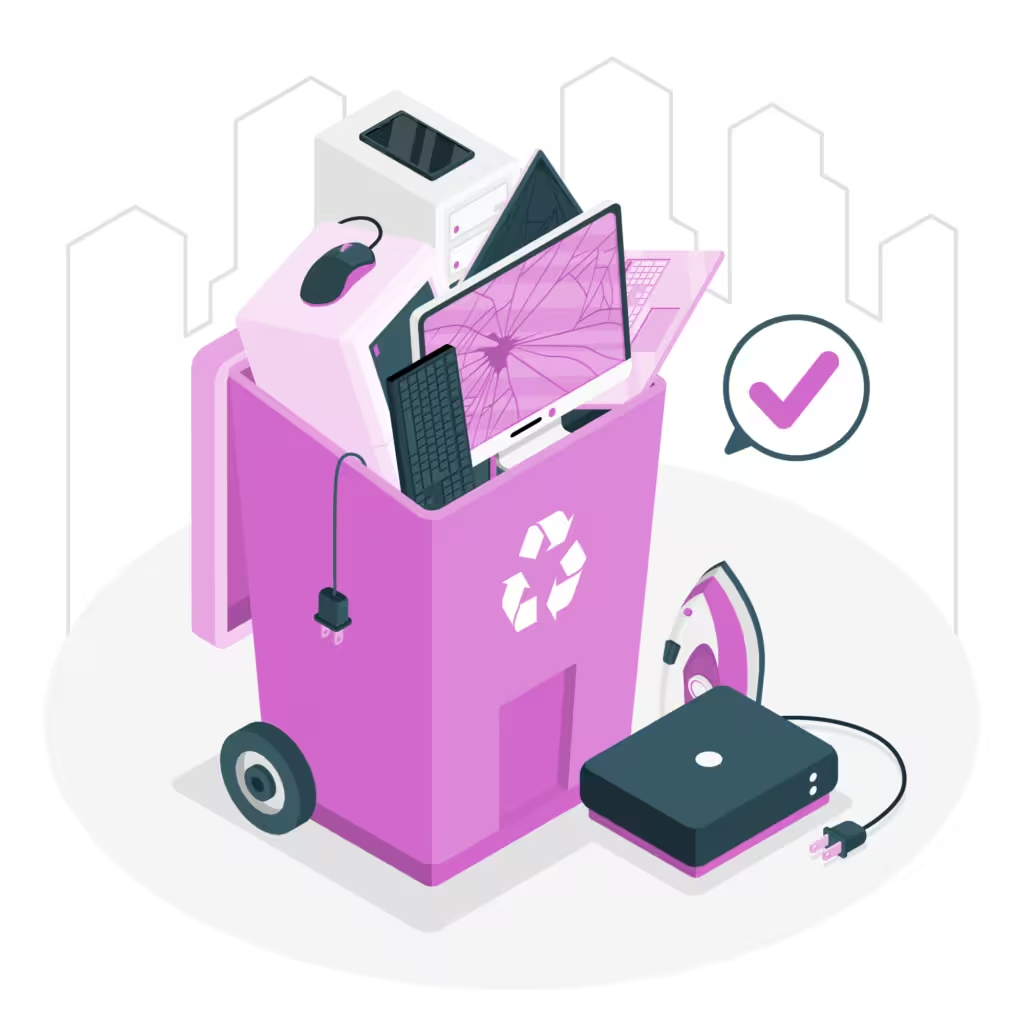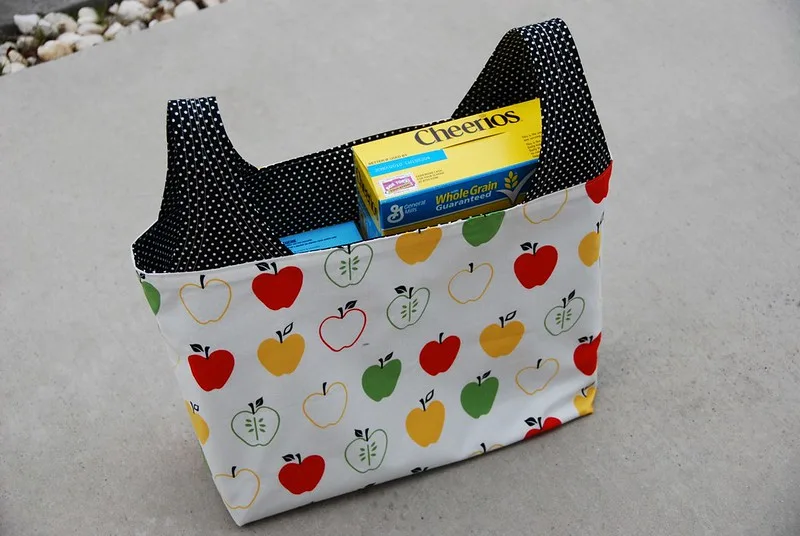Introduction
Living sustainably doesn’t have to be overwhelming. In today’s blog post, I’ll show you how easy it is to turn any home into a zero-waste haven with just a few simple changes. By adopting a zero-waste lifestyle, you not only help protect the environment but also enjoy a more organized, clutter-free, and cost-effective living space. Curious about how reducing waste can positively impact your daily life? Read on, and let’s dive into 15 practical tips to set you on the path toward a zero waste home.
Key takeaways
- Learn practical strategies for reducing household waste
- Discover how to implement sustainable shopping habits
- Find easy ways to compost food scraps effectively
- Get creative with repurposing old items
- Understand the importance of using reusable products
Reducing Grocery Waste


Reducing kitchen waste is an easy and excellent starting point for building a zero waste home. Kevin Zhu from ZeroWaste.org noted that 1.3 billion tons of food are wasted yearly, but with a few changes, you can drastically reduce your trash output.
1. Utilize Reusable Containers and Bags
Reusable containers and bags come to the rescue, keeping your food fresh without the guilt of waste. Storing your grains, snacks, and even leftovers in reusable containers drastically reduces the clutter of single-use plastics. Why not swap those flimsy plastic grocery bags for sturdy cloth bags? They carry more and are eco-friendly. Mason jars are perfect for storing bulk items and add a rustic charm to your pantry. Reusing containers lowers your carbon footprint and keeps your kitchen organized, making zero-waste living both practical and creative.
Imagine the simplicity of packing lunches in reusable containers or grabbing your sturdy tote bags for a quick grocery run. With reusable water bottles and cloth bags, the journey towards a zero waste home feels like a seamless transition rather than a chore. You’ll find that these small switches benefit the environment and simplify your daily routines.
2. Start a Home Kitchen Garden for Fresh Produce
Why not consider growing your own food? Starting a kitchen garden brings fresh herbs and vegetables right to your doorstep. Besides the joy of harvesting your own produce, a home garden reduces your dependency on store-bought greens that often come wrapped in plastic.
Imagine plucking fresh basil or lettuce straight from your garden for that evening salad. By reducing trips to the grocery store, you not only cut overall waste but also foster a deeper connection to your food and the earth. The satisfaction of growing and eating your produce is unparalleled, making this lifestyle shift both rewarding and eco-friendly.
Implement Sustainable Shopping Habits


Making conscious choices when shopping can significantly reduce your waste and environmental impact. Sustainable shopping isn’t just about what you buy but how you buy it.
3. Buy Second-Hand Items or Look for Sustainable Brands
Second-hand stores are treasure troves for unique finds and sustainability. These stores reduce landfill waste, giving items a second life. Sustainable brands, on the other hand, promote ethical manufacturing and a zero waste philosophy. Thrift shopping provides a fun and affordable way to find clothes and household items, all while saving resources.
Consider setting up clothing swaps with friends. It’s an engaging way to refresh your wardrobe without buying new items. Sustainable brands and second-hand stores foster a community-focused, waste-free / minimized lifestyle movement that makes us more conscious consumers. We not only save money but also take a stand for sustainability.
4. Avoid Single-Use Plastics and Opt for Eco-Friendly Alternatives
The battle against single-use plastics can seem daunting, but eco-friendly alternatives make it easier. Using metal straws, bamboo toothbrushes, and beeswax wraps can drastically reduce household plastic waste. For instance, swapping plastic utensils for eco-friendly ones keeps countless disposable forks and spoons out of the landfill.
Incorporating these alternatives into daily life isn’t just a task—it’s a lifestyle change. Investing in reusable water bottles and stainless steel straws elevates our efforts toward becoming a zero waste home. These small, sustainable swaps lead to significant impacts over time, contributing to a healthier planet and a cleaner home.
Compost Food Scraps


Composting is a powerful way to manage food waste responsibly. Turning kitchen scraps into compost enriches your garden soil and significantly reduces landfill waste.
Set Up a Compost Bin or Pile in Your Home
Understanding what food scraps can be composted is crucial to maintaining a healthy compost bin. Items like fruit and vegetable peels, coffee grounds, and eggshells are compost-friendly. However, avoid adding meat, dairy, or oily foods to your compost bin, as they can make it smell or attract pests.
Educating ourselves about composting ensures that our efforts are productive and beneficial. A good compost guide can be a handy tool to keep your compost thriving and healthy, contributing positively to your zero waste mission.
Once you understand what can and can’t go in a compost bin, Setting it up in your home isn’t as complicated as it sounds. Depending on your space, you can opt for an indoor or outdoor setup. Kitchen scraps such as fruit peels, vegetable cuttings, and coffee grounds become rich compost that revitalizes your garden. Indoor compost bins are compact and require minimal effort to manage.
Using a compost bin offers a straightforward way to handle food scraps, making zero waste living attainable for everyone. Composting efficiently reduces the pounds of waste you send to landfills, adding a feel-good element to your sustainable lifestyle.
6. Use Compost for Fertilizing Plants or Gardens
Your compost should not go to waste. It serves as a potent fertilizer for both indoor plants and garden beds. By using homemade compost, you provide essential nutrients to your plants, encouraging robust growth. Flowers, veggies, and herbs flourish with this natural, sustainable soil amendment.
This practice returns vital nutrients to the earth, creating a closed-loop system in your backyard. Besides reducing waste, composting fosters a more sustainable lifestyle and a thriving garden.
Find Creative Ways to Repurpose Items


Repurposing items gives them new life and keeps them out of landfills. Creativity plays a significant role in how we reuse what we already have.
7. Turn Household Items into DIY Projects
Household items like tin cans and glass jars offer infinite possibilities for DIY projects. Tin cans become decorative planters, while glass jars serve as candle holders or storage solutions. These projects are fun and economical, plus they keep waste at bay.
Imagine gifting friends and family well-thought-out, repurposed items. It’s a great way to share your zero waste journey and inspire others while saving money. DIY projects can turn everyday items into unique, personalized pieces for your home.
Old furniture and clothing can be upcycled into new, valuable items. A worn-out dresser can transform into a unique storage solution with a coat of paint. Similarly, old clothes can be turned into bags, quilts, or even stylish new outfits. Upcycling not only reduces waste but also sparks creativity and innovation.
Engaging in DIY upcycling projects is not just about waste reduction; it’s also a way to rediscover the joy of making and creating. Painting an old chair or sewing a quilt out of T-shirts turns waste into art, making your home feel cozy and custom.
8. Donate Unwanted Items to Local Thrift Stores or Charities
Instead of discarding unwanted items, consider donating them to local thrift stores or charities. These organizations gladly accept and repurpose your gently used clothes, furniture, and household items, preventing them from ending up in landfills.
Donating extends the life of your possessions and supports community sustainability efforts. It’s a simple act that has a considerable impact, helping those in need and promoting a zero waste home.
Reduce Paper Waste


Reducing paper waste is another critical aspect of achieving a zero waste home. Simple changes can make a significant impact on how much paper we consume.
9. Switch to Electronic Bills, Statements, Digital Books or Magazines
One of the easiest ways to reduce paper waste is by switching to electronic bills and statements. Digital billing eliminates paper invoices and offers a convenient, eco-friendly alternative. You can track expenses without cluttering your drawers; every paperless statement makes a noticeable difference.
The transition to digital statements is seamless and contributes significantly to your zero waste goals. By eliminating unnecessary paper clutter, you create a more organized and sustainable living space.
Digital books and magazines offer a sustainable alternative to their paper counterparts. E-books provide limitless reading material without paper, and digital magazines deliver vibrant content without waste. Embracing digital media greatly reduces paper consumption.
With a digital library, you can enjoy your favorite books and magazines without the physical constraints of paper copies. This simple switch significantly reduces your paper footprint.
10. Recycle Paper Products and Use Both Sides Before Discarding
Recycling paper products and using both sides of paper maximizes their utility. Every recycled page prevents excessive landfill accumulation, making these small actions impactful. Responsible paper use sets a zero waste example for others to follow.
By incorporating these habits, you can dramatically reduce your paper waste and contribute to a cleaner environment. It’s a simple yet effective way to support your zero waste lifestyle.
Properly Dispose of Electronic Waste


Proper disposal of electronic waste is essential for a sustainable home. E-waste contains harmful materials that need to be handled responsibly.
11. Recycle Old Electronics at Local E-Waste Centers
Local e-waste centers manage electronic recycling responsibly. They ensure that old gadgets are either given new life or safely dismantled. Recycling electronics prevents them from becoming harmful landfill waste.
Responsible e-waste management companies provide eco-friendly recycling solutions. They’re accountable for properly disposing of electronic waste, ensuring that tech trash is recycled ethically. By choosing these companies, your electronic waste finds a good home.
Sustainable practices thrive when we partner with responsible e-waste management services. This choice ensures that your tech waste is handled correctly, contributing to a cleaner and greener planet.
12. Donate Working Electronics to Charities or Organizations
If your old electronics are still functional, consider donating them to charities or organizations. Schools and non-profits often benefit greatly from these donations, which extend the life of your devices and make them useful again.
This act of generosity helps those in need and supports a sustainable lifestyle. Your community flourishes when any working electronics are shared rather than discarded.
Support Local Zero Waste Stores


Supporting local zero waste stores strengthens community sustainability efforts. These stores offer products and solutions that align with a zero waste lifestyle.
13. Shop at Farmers’ Markets for Fresh, Package-Free Produce
Farmers’ markets offer fresh, local produce without the packaging. Your support not only aids local farmers but also reduces food miles. Shopping package-free encourages sustainable consumption and seasonal eating habits, promoting zero waste.
These markets provide an opportunity to connect with food and farmers, making your shopping experience more personal and impactful. Supporting farmers’ markets contributes to a zero waste community.
14 Visit Bulk Stores for Package-Free Household Items
Bulk stores provide package-free household essentials, from grains and spices to cleaning supplies. Refill stations for laundry and personal care products reduce waste, making zero waste shopping straightforward.
By bringing your containers and shopping at bulk stores, you significantly minimize your environmental impact. These stores simplify the zero waste journey, making it accessible to everyone.
Educate Yourself and Others


Education is a powerful tool in the zero waste journey. By learning and sharing knowledge, we inspire sustainable living in our communities.
15. Attend Workshops or Events on Zero Waste Living
Workshops and events offer valuable education and networking opportunities. They provide hands-on skills for sustainable living and boost your commitment to a zero waste lifestyle. Zero waste events foster a shared enthusiasm for sustainability.
Engaging with experts and like-minded individuals at these events can reignite your dedication to a zero waste home. These experiences are both educational and empowering.
Bonus! Share Tips and Ideas with Friends and Family
Sharing zero waste tips and ideas with friends and family multiplies the impact of sustainable habits. Your advice helps others embrace a zero waste lifestyle, promoting community efforts for the environment.
By conversing and exchanging tips, you create a network of support and inspiration. This collaborative approach makes zero waste living more attainable and enjoyable.
Summary
Transforming your home into a zero waste haven is a rewarding journey filled with practical and impactful choices. Each step brings you closer to a sustainable lifestyle, from reducing kitchen waste with reusable containers and shopping in bulk to composting and repurposing household items. By supporting local zero waste stores, educating ourselves and others, and properly disposing of electronic waste, we can collectively create a significantly positive impact on the environment.
Now that you have these actionable steps, what’s your first move towards reducing waste in your home? Share your thoughts and let’s inspire each other on this zero waste journey!
Frequently Asked Questions
What Is A Zero Waste Home?
A zero waste home is a sustainable lifestyle approach that aims to reduce the amount of waste produced in a household. It involves minimizing unnecessary consumption, reusing items, recycling materials, and composting organic waste to achieve minimal or zero landfill waste.
What are the 5 rules of zero waste?
The 5 rules of zero waste are Refuse, Reduce, Reuse, Recycle, and Rot. Refuse unnecessary items and packaging, reduce consumption of single-use products, reuse items whenever possible, recycle materials properly, and Recycle organic waste through composting.
How to make your home zero waste?
To make your home zero waste, start by auditing your current waste production, then gradually implement changes such as using reusable products, reducing disposable items, composting organic waste, recycling materials, and supporting a circular economy through mindful consumption.
What Does Zero Waste Mean?
Leslier Valenzuela-Fernandez and Manuel Escobar Farfan define Zero Waste “as an approach that incorporates sustainable consumption and responsible waste management practices to ensure minimal to no waste enters landfills or incinerators. It is part of a larger movement that promotes circular economy principles.”
Isn’t It Expensive To Go Zero Waste?
While some upfront costs may be associated with adopting a zero waste lifestyle, the long-term savings, both financially and environmentally, are substantial. Many people who live zero waste report spending less overall due to reduced consumption and reusing products. It’s also worth noting that zero waste principles—such as buying less, reusing items, and making mindful choices—are cost-saving in the long run.
How To Save Money When Starting Out?
You can save money on your zero waste journey by starting small and making affordable, gradual changes. Instead of investing in expensive zero-waste products immediately, use reusable items you already have, like water bottles and cloth bags, and shop secondhand whenever possible. Following the tips in this article will lead to long-term savings without a big upfront investment.
Additional inquiries?
Unable to locate the desired information? Let’s engage in a conversation.


Leave a Reply